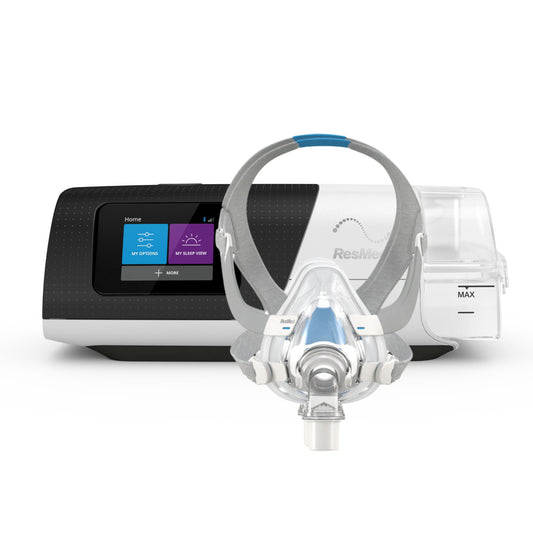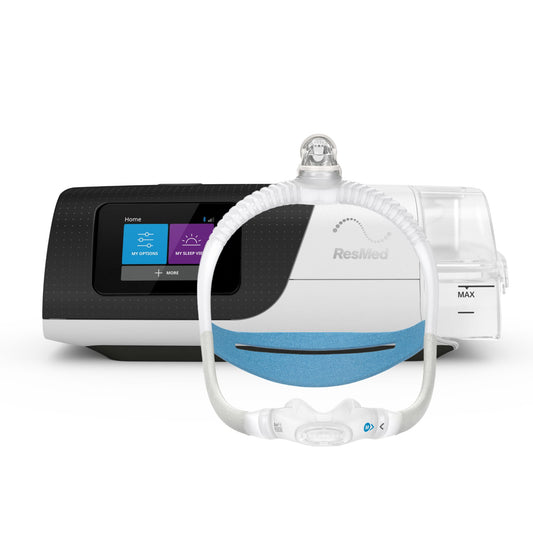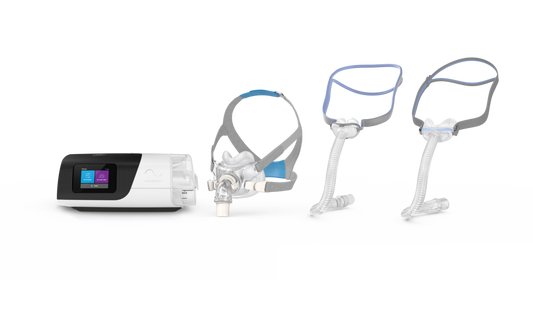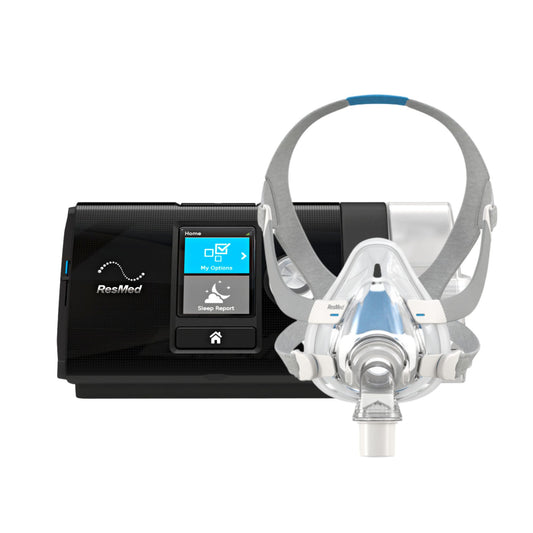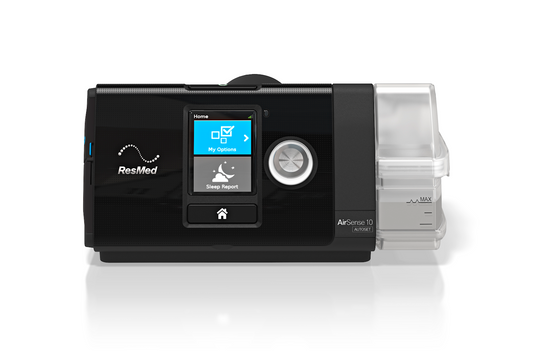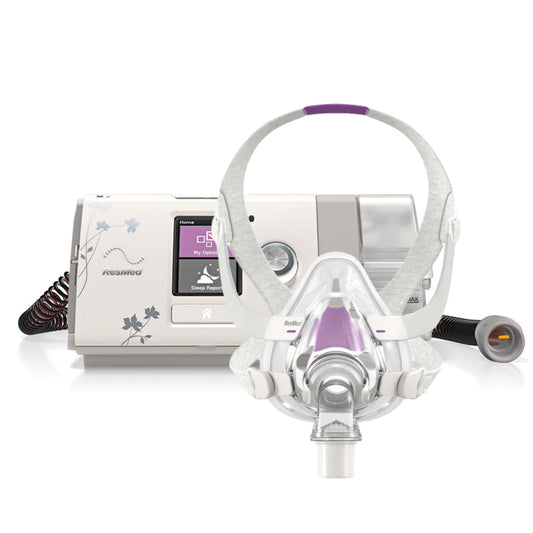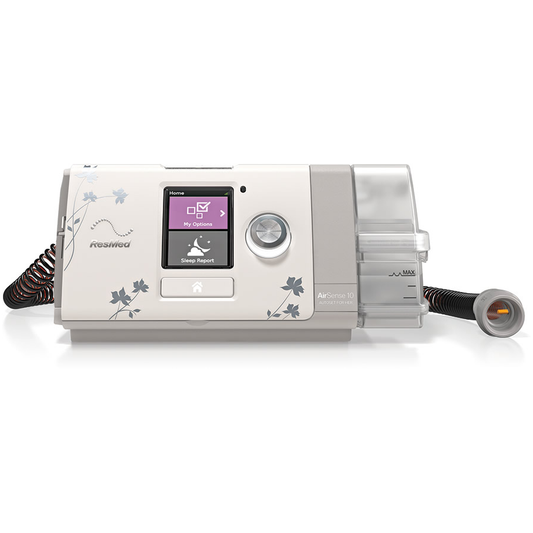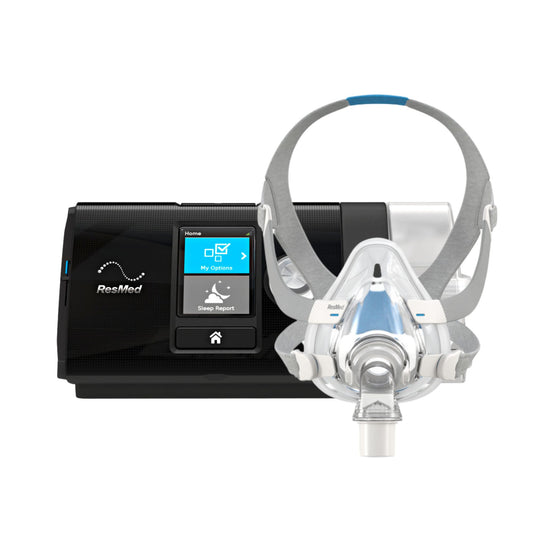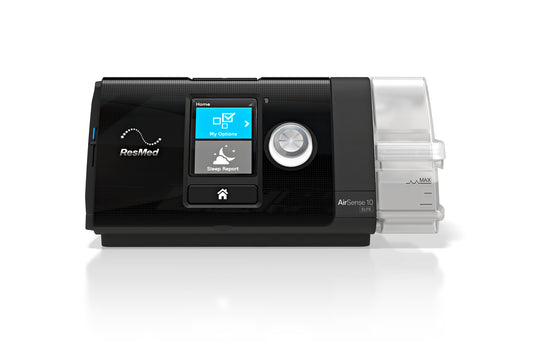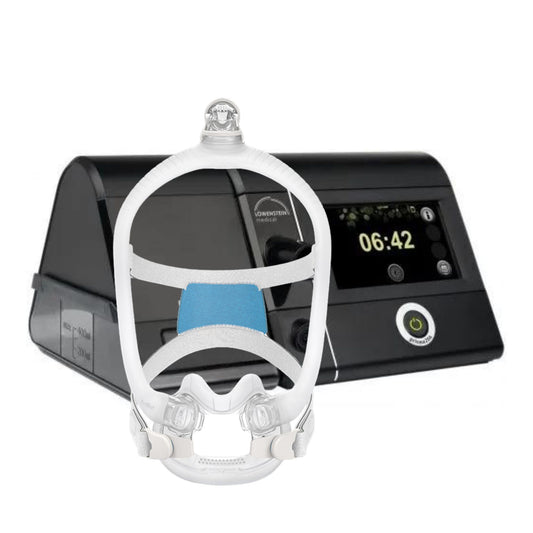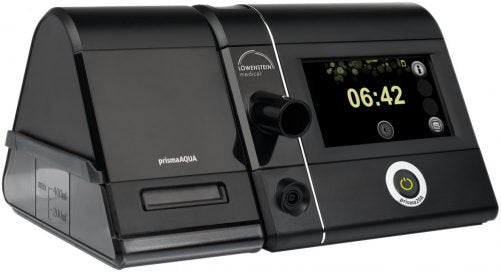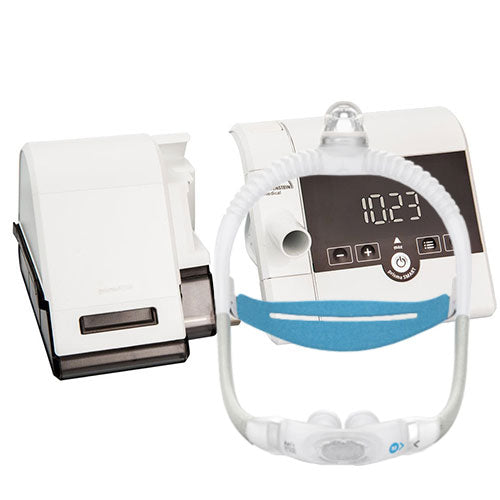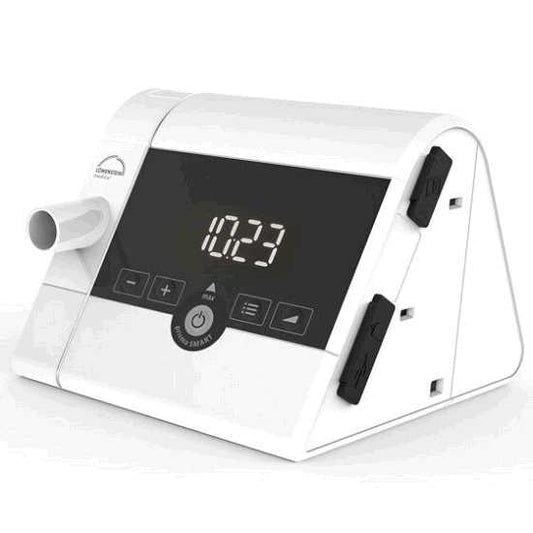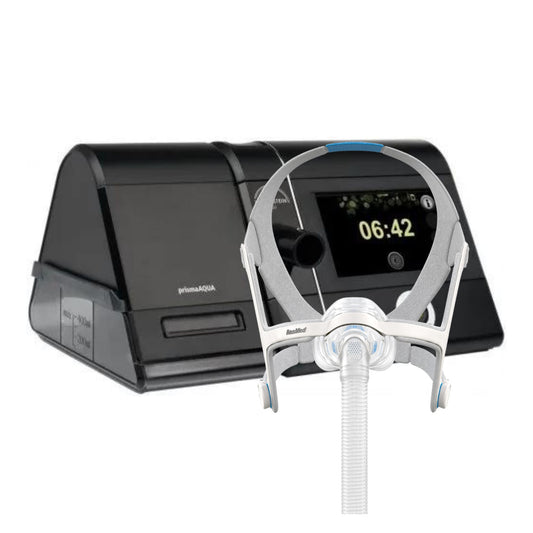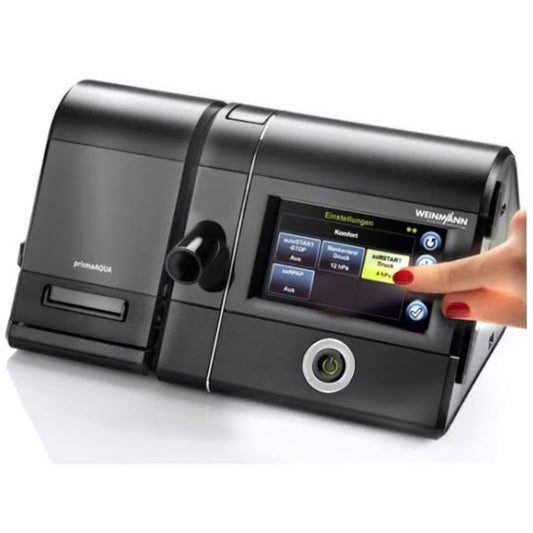CPAP FAQ
What is CPAP therapy and how does it work?
CPAP (Continuous Positive Airway Pressure) therapy involves using a machine that delivers a constant flow of air through a mask worn over the nose and/or mouth during sleep. This airflow keeps the airway open, preventing interruptions in breathing commonly associated with sleep apnea.
What are the benefits of using a CPAP machine?
CPAP therapy effectively treats obstructive sleep apnea, reducing symptoms such as daytime fatigue, snoring, and improving overall sleep quality. It also helps lower the risk of associated health issues like hypertension, heart disease, and stroke.
What conditions does CPAP treat?
CPAP therapy primarily treats obstructive sleep apnea (OSA), a condition where the airway becomes blocked during sleep, leading to pauses in breathing. It can also be used to manage other sleep-related breathing disorders, such as central sleep apnea and complex sleep apnea syndrome.
How do I know if I need a CPAP machine?
A sleep study, usually conducted in a sleep clinic or at home, can diagnose sleep apnea and determine if CPAP therapy is necessary. Symptoms such as loud snoring, excessive daytime sleepiness, and gasping for air during sleep may also indicate a need for CPAP therapy.
What are the different types of CPAP masks available?
There are several types of CPAP masks, including nasal masks, nasal pillow masks, and full face masks. The choice of mask depends on individual preferences, comfort, and breathing patterns.
How do I properly clean and maintain my CPAP equipment?
It's essential to clean CPAP masks, tubing, and humidifier components regularly to prevent bacterial growth and ensure optimal therapy. This involves washing with mild soap and water, and some parts may require replacement over time.
What are the common side effects of using a CPAP machine, and how can they be managed?
Common side effects may include dry mouth, nasal congestion, skin irritation, and discomfort from mask pressure. Adjusting mask fit, using a humidifier, and consulting with a healthcare provider can help alleviate these issues.
Can I travel with my CPAP machine?
Yes, most CPAP machines are portable and suitable for travel. It's important to plan ahead, pack necessary accessories, and notify airlines if carrying CPAP equipment.
Will using a CPAP machine improve my sleep quality
Yes, for individuals with sleep apnea, CPAP therapy is highly effective in improving sleep quality, reducing daytime fatigue, and enhancing overall well-being.
How long does it take to adjust to using a CPAP machine
Adjusting to CPAP therapy varies for each individual. Some people adapt quickly, while others may require more time. Consistent use, proper mask fit, and support from healthcare providers can facilitate the adjustment process.
